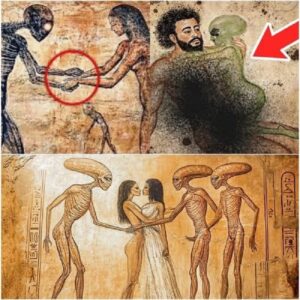
What Does the Bible Say About Age Differences In Marriage?
Age Difference in Relationships: Beyond Numbers
When it comes to love, few topics stir debate like age gaps. Society often sets “acceptable” standards, yet history and psychology show that love rarely follows rigid rules. Across time, couples with significant age differences have challenged stereotypes and proven that connection goes deeper than numbers.
Modern relationships look different than in the past. While some couples are close in age, others span decades. What captures attention is not the age itself, but questions of power, stability, and compatibility. Yet lasting love relies more on trust, respect, and shared values than on birth years.
Psychologists note both benefits and challenges in age-gap relationships. Older partners may bring wisdom and stability, while younger partners often offer energy and fresh outlooks. Together, these differences can create balance and growth.

Still, challenges arise when partners are at different life stages. Career goals, family planning, or lifestyle choices may clash without honest discussions. Open communication about the future is crucial to bridging these gaps.
History shows age gaps were once the norm, often tied to stability or fertility. Today, with a stronger focus on independence and equality, couples with large gaps may face more criticism than before.

Celebrities often spotlight the issue. Some applaud them for following their hearts, while others question power dynamics. These debates highlight society’s double standards more than the relationships themselves.
Gender bias also plays a role. Older men with younger partners are often praised, while older women face harsh labels. Couples who resist judgment often thrive by focusing on their bond instead of public opinion.
Ultimately, emotional maturity, respect, and shared goals—not age—determine success. Love is not defined by numbers but by resilience, connection, and a willingness to grow together.
For our benefit, He was made to bear sin (cf. 2 Cor 5:21), leading the Father to place upon His Son the burden of our transgressions. In the words of Pope Benedict XVI, this act represents a “turning of God against himself” (Deus Caritas Est, 12). God’s love extends even to His adversaries (cf. Mt 5:43-48).
The dialogue that God seeks to establish with each individual through the paschal mystery of His Son is far removed from mere idle talk, reminiscent of the ancient Athenians who “spent their time in nothing except telling or hearing something new” (Acts 17:21).
Such trivial conversation, driven by a hollow and superficial curiosity, epitomizes worldliness throughout history; in contemporary times, it can manifest as the inappropriate use of media.
A wealth to be shared, not hoarded
Placing the paschal mystery at the heart of our existence compels us to empathize with the suffering of the crucified Christ, reflected in the countless innocent victims of conflict, assaults on life—from the unborn to the elderly—and various forms of violence. This suffering is also evident in environmental catastrophes, the inequitable distribution of the earth’s resources, human trafficking in all its manifestations, and the insatiable pursuit of profit, which constitutes a form of idolatry.
Today, there remains a pressing need to encourage individuals of goodwill to share their resources through almsgiving with those in dire need, thereby actively contributing to the creation of a better world. Acts of charity enhance our humanity, while hoarding can diminish it, trapping us in our own selfishness. We must also delve deeper and examine the structural dimensions of our economic systems. Therefore, during Lent this year, from March 26 to 28, I have organized a gathering in Assisi with young economists, entrepreneurs, and innovators, aimed at fostering a more equitable and inclusive economy. As the Church’s teachings have frequently emphasized, political engagement is a significant expression of charity (cf. Pius XI, Address to the Italian Federation).
I request the intercession of Mary Most Holy, that our observance of Lent may soften our hearts to respond to God’s invitation for reconciliation with Him. May we focus on the paschal mystery and engage in a genuine and open dialogue with Him. Through this transformation, we will embody what Christ calls His disciples to be: the salt of the earth and the light of the world (cf. Mt 5:13-14).
